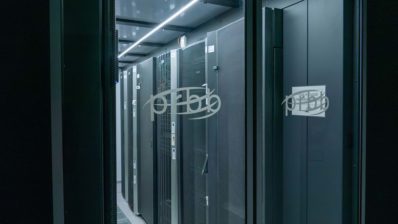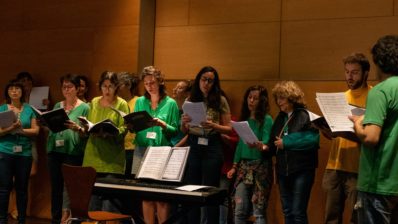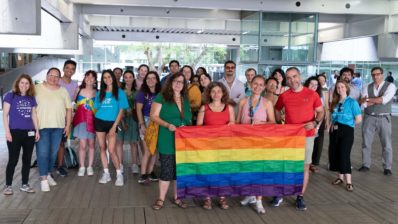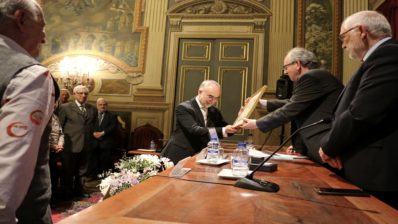After a twelve years delay – the science law of 2011 already provided for its creation but it did not come to fruition – last June 1 the “Spanish Research Ethics Committee” was established. Its aim is to ensure responsible research. This advisory body depends on the “Consejo de Política Científica, Tecnológica y de Innovación” (Council for Scientific, Technological and Innovation Policy), a body formed by the territorial councilors and chaired by the Minister of Science and Innovation.
We speak with Jordi Camí, director of the Barcelona Biomedical Research Park (PRBB), who has been elected president of the Committee – with Núria Sebastián, professor at Pompeu Fabra University, elected as vice president.
There is already a “Comité de Bioética de España” and now this new committee has been created to deal with issues of both ethics and integrity in research. To begin with, what is the difference between bioethics and integrity?
Many people confuse both terms, and of course they are related, but they are very different concepts. The field of bioethics tries to reach agreements in the face of moral dilemmas related to health care and biomedical research issues. This is the task of bioethics committees, such as the Comité de Bioética de España, which has been in existence since 2007.
Scientific integrity is about the behaviour of scientists, about good practices, about being honest and not cheating. Integrity is about doing things well, even if it is very difficult. This new committee covers all disciplines, not just biomedicine.
What is the composition of the “Comité Español de Ética de la Investigación“?
We are 12 members, half of them nominated by the autonomous communities. There are different profiles: experts in science communication, food technology, artificial intelligence, health law, philosophy, medicine, biology… There is a member of the Federation of Young Researchers “Precaris“, university professors, the director of a centre at Columbia in the United States, and also the current President of the “Spanish Bioethics Committee”.
And what are your functions?
Amongs the committee functions are:
- To promote a culture of good research practice; this includes encouraging training in this area, the creation of codes of good practice, of integrity plans or committees.
- To issue reports and advising organisations on integrity issues.
- To participate or give opinions in conflicts between Spanish organisations, or between a Spanish organisation and a foreign one.
- To represent Spain in international bodies related to scientific integrity.
Do you already have some assignment?
At the moment we are having monthly meetings, establishing the operating mechanisms. On the very day of the committee’s constitution, the Minister commissioned a couple of opinion pieces: one on artificial intelligence – just now a European legislation on the topic, the AI Act, is being drafted – and another one on the issue of affiliations. This is as a result of the fraud of some researchers affiliated to Spanish institutions, and others around the world, who have accepted payments in exchange for having a Saudi university as their main affiliation, helping that university to improve their position in the university rankings.
“In order to advance in integration issues, so that things can happen, first we need to have the appropriate structures. This is a first step”.
Jordi Camí, president of the “Comité Español de Ética de la investigación“.
You were involved in the creation of the CIR-Cat (the Committee for the Integrity of Research in Catalonia), which was established in 2019, and which you chaired for the first two years. What is the relationship between that one and this new committee?
It could be said that one is the Catalan version and the other the Spanish one. Both the mandates and the functions are very similar. Three of the members of the CIR-Cat are also members of the new Spanish Committee, so having the experience of creating the CIR-Cat will help a lot in this new initiative.
You are a clinical pharmacist by training, but you have a long curriculum in ethics and integrity issues, in which you have always been a step ahead… In 1991 you were a member of the Bioethics Advisory Committee of the Generalitat de Catalunya, and in 2004 you were a member of the “Comité de Bioética de España“.
In 1999 you created a pioneering course at the UPF, Science in action, which continues to train doctoral students in integrity issues. More than 20 years ago, when no one was talking about it, you promoted the creation of the Code of Good Practices that we have at the PRBB… What made you become interested in this subject?
Bioethics has always interested me, since the first day. We could say that pharmacists are, first of all, ‘methodologists’… methodology is very close to us, given the importance of clinical trials in our discipline. Together with other pharmaceutical colleagues, I participated in the drafting of the first royal decree on clinical trials, and in the regulation of the first Clinical Research Ethics Committees in Catalonia. Thus, it is not strange that I was the president of the first Clinical Research Ethics Committee of IMAS (now Hospital del Mar), where I was from 1994 to 2000.
And what about magic, the other of your most recent passions?
In fact, both things are closely related! I am very interested in the manipulation of human beings by human beings themselves. The manipulative capacity of magic has not been well exploited in the world of cognitive research. That is why I am fascinated by magic, illusionism… and by research integrity, since there is a part of manipulation and deceiving others or even oneself.
Thank you Jordi, and congratulations also for your new appointment as Scientific Secretary of the Institute of Catalan Studies!







